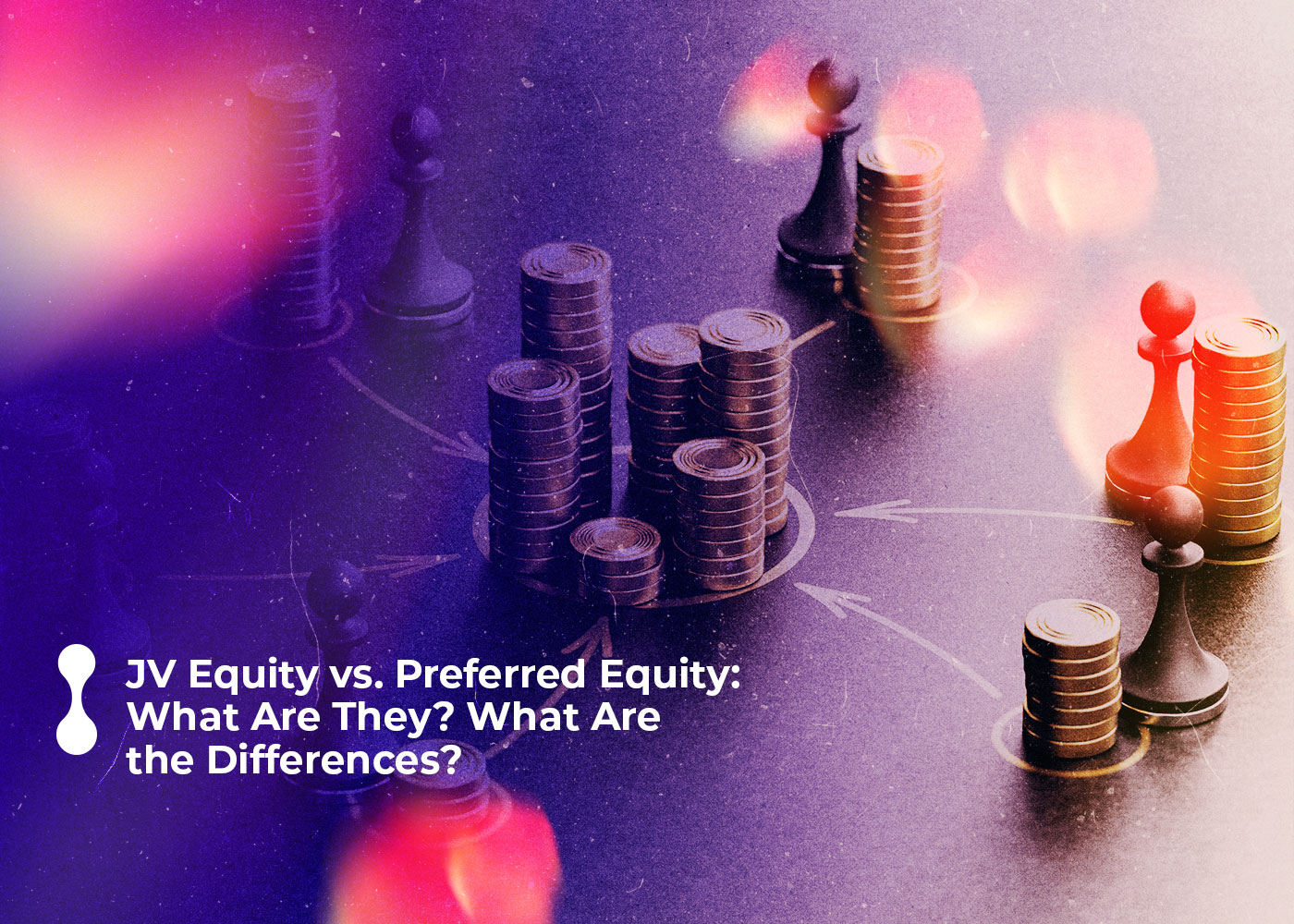When it comes to investing, you can adopt many different options and strategies to maximize your capital gains – whether that be through stocks, bonds, or real estate. However, two strategies have become much more prominent in the investing world in recent years: Joint Venture Equity (JV Equity) and Preferred Equity (PE). This blog post is here to answer all your questions relating to these variations of equity, what they are, how they differ from one another, and why investors might choose them instead of traditional stock investments. Read on to learn everything you need to know about JV Equity vs. Preferred Equity!
What Is JV Equity? Let Us Explain:
JV equity, also known as Joint Venture equity, refers to the ownership stake in a joint venture that is held by one or more partners who provide equity funding to the venture. In a joint venture, two or more parties come together to pool resources, skills, and expertise to undertake a specific business project or venture.
JV equity typically refers to the equity capital that is contributed by one or more partners in the joint venture, as opposed to debt financing. In return for their investment, the equity partners receive an ownership stake in the joint venture and a share in the profits or losses of the venture.
JV equity is often used in large-scale real estate development projects, infrastructure projects, and other high-cost ventures that require significant capital investment. By pooling resources and sharing the risks and rewards of the venture, the joint venture partners can leverage their combined expertise and financial resources to achieve their shared goals.

What About Preferred Equity?
Preferred equity is a type of company ownership with specific rights and privileges that differ from those of common equity. Preferred equity holders have a higher priority over common equity holders when it comes to receiving dividends or in the event of liquidation or bankruptcy.
Unlike common equity, preferred equity typically does not carry voting rights or the ability to influence management decisions. However, preferred equity holders may have the right to convert their ownership into common equity under certain conditions.
Preferred equity is often used as a financing tool for companies that want to raise capital without diluting existing ownership. It can be issued to investors, venture capitalists, or private equity firms and is typically structured as a fixed-income security with a predetermined dividend rate and maturity date.
JV Equity vs. Preferred Equity: What Are the Differences?
Regarding equity ownership, there are two distinct types: JV equity (joint venture equity) and preferred equity. Although they both serve different objectives, here is a breakdown of the main differences between them:
- Purpose: JV equity is the perfect tool for collaborative projects involving two or more entities. Preferred equity offers a particularly beneficial option to businesses wanting to raise funds without affecting existing ownership.
- Rights: JV equity holders are typically given a seat at the table when it comes to management decisions, while preferred equity holders remain on the sidelines without voting rights. Hence, JV shareholders can influence major choices in regard to the business, whereas preferred ones do not have that privilege.
- Priority: JV equity holders not only share in the joint venture’s profits but also take a hit when losses occur. Moreover, preferred equity holders have precedence over common shareholders about dividend payment and liquidation or bankruptcy procedures.
- Risk: Equity holders of a joint venture bear the inherent risks associated with such an agreement, while preferred equity holders have reduced exposure compared to joint equity owners but still face limited risk.
- Structure: JV equity is formed as a partnership or joint venture understanding, while preferred equity takes the shape of income security with a pre-calculated dividend rate and expiration date.
In summary, JV equity and preferred equity are two different types of equity ownership that serve different purposes and offer different rights and privileges.
Why Are JV Equity or Preferred Equity Preferred?
Investors may prefer JV equity or preferred equity over traditional stock investments for several reasons, including:
- Higher potential returns: Compared to traditional stocks, Joint Venture (JV) equity and preferred equity provide a more attractive return on investment; they involve greater risk but are designed so that investors receive higher returns.
- Priority in payouts: As preferred equity holders, investors can feel more secure knowing that they will receive dividends before joint equity holders and in the event of liquidation or bankruptcy. This assurance gives them a greater sense of protection for their investment.
- Control: JV equity holders have a voice in the joint venture’s management, while preferred equity holders may possess certain control powers, including transforming their preferred equity into common stock.
- Diversification: Investing in either joint venture equity or preferred equity can be highly advantageous for diversifying an investor’s portfolio. The benefit of these types of investments is that they typically don’t correlate with the same market fluctuations as traditional stocks do.
- Risk management: By investing in JV equity and preferred equity, you can mitigate risk while enjoying limited liability and a fixed rate of return.
To sum up, investing in JV equity or preferred equity can be more advantageous than traditional stock investments since they provide better rewards and payouts, greater control rights, chances to diversify their portfolio, as well as improved risk management opportunities.
Let’s Wrap It Up:
In conclusion, there are key distinctions between JV equity and preferred equity. Understanding these two types of equities is essential for any business. Knowing which option is best for your business will help you make an informed decision about how to achieve success. There are pros and cons associated with both options when investing in your future, so it’s important to understand what each entails before deciding which route is best for you. Regardless of the route taken, proper due diligence should always be conducted to ensure that all investments are sound and appropriate to reach your financial outcomes.
